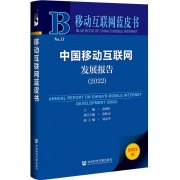World powers seek to bring US back into Iran nuclear deal
Officials from five world powers have begun a new effort to try to bring the United States back into the foundering 2015 nuclear deal they signed with Iran
April 6, 2021, 6:44 PM
6 min read
Share to FacebookShare to TwitterEmail this articlePolitical deputy at the Ministry of Foreign Affairs of Iran, Abbas Araghchi, right, arrives at the Grand Hotel Wien where closed-door nuclear talks with Iran take place in Vienna, Austria, Tuesday, April 6, 2021. Foreign ministry officials from the countries still in the accord, the so-called Joint Comprehensive Plan of Action, are meeting in Vienna to push forward efforts to bring the United States back into the 2015 deal on Iran's nuclear program. (AP Photo/Florian Schroetter)
VIENNA -- Officials from five world powers began a new effort Tuesday to try to bring the United States back into the foundering 2015 nuclear deal they signed with Iran, a delicate diplomatic dance that needs to balance the concerns and interests of both Washington and Tehran.
The meeting in Vienna of envoys from Russia, China, Germany, France, Britain and Iran came as the U.S. was due to start its own indirect talks with Iran. It would be one of the first signs of tangible progress in efforts to return both nations to the accord, which restricted Iran’s nuclear program in return for relief from U.S. and international sanctions.
Following the closed meetings of the signatories to the deal, known as the Joint Comprehensive Plan of Action, Russia's delegate, Mikhail Ulyanov, tweeted that the initial talks were “successful.”
“The restoration of JCPOA will not happen immediately. It will take some time. How long? Nobody knows,” he wrote. “The most important thing after today's meeting of the Joint Commission is that practical work towards achieving this goal has started.”
In 2018, then-President Donald Trump pulled the U.S. unilaterally out of the accord, opting for what he called a maximum-pressure campaign involving restored and additional American sanctions.
Since then, Iran has been steadily violating restrictions in the deal, like the amount of enriched uranium that it can stockpile and the purity to which it can be enriched. Tehran’s moves have been calculated to pressure the other nations in the deal to do more to offset crippling U.S. sanctions reimposed under Trump.
U.S. President Joe Biden, who was vice president under Barack Obama when the original deal was negotiated, has said he wants to bring the U.S. back into the JCPOA but that Iran must reverse its violations.
Iran argues that the U.S. violated the deal first with its withdrawal, so Washington has to take the first step by lifting sanctions.
Following the meeting in Vienna, Iranian state television quoted Iran’s negotiator, Abbas Araghchi, as reiterating that message during the opening round of talks.
“Lifting U.S. sanctions is the first and the most necessary action for reviving the deal," Araghchi was quoted as saying. “Iran is fully ready to reverse its activities and return to complete implementation of the deal immediately after it is verified sanctions are lifted."
At the meeting, participants agreed to establish two expert-level groups, one on the lifting of sanctions and one on nuclear issues, which were “tasked to identify concrete measures to be taken by Washington and Tehran to restore full implementation of JCPOA,” Ulyanov tweeted.
They are to start work immediately, and report their conclusions to the main negotiators.
The ultimate goal of the deal is to prevent Iran from developing a nuclear bomb, something it insists it doesn’t want to do. Iran now has enough enriched uranium to make a bomb, but nowhere near the amount it had before the nuclear deal was signed.
In the latest announced violation, Behrouz Kamalvandi, a spokesman for Iran’s civilian nuclear program, said officials had begun mechanical testing of an IR-9 prototype centrifuge. That centrifuge would enrich uranium 50 times faster than the IR-1s allowed under the accord, he said, according to the semi-official ISNA news agency.
The clock is ticking on trying to get the U.S. back into the deal, with the goal of returning Iran to compliance, with a number of issues to consider.










